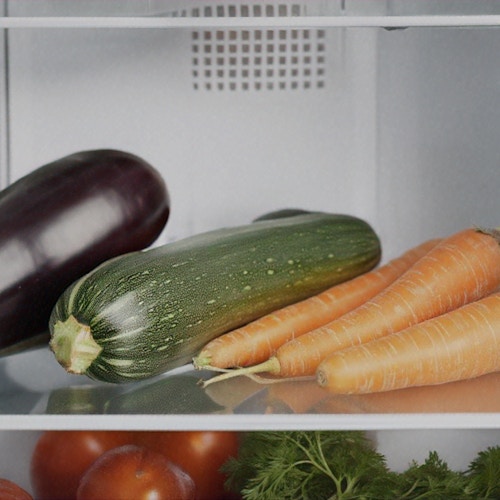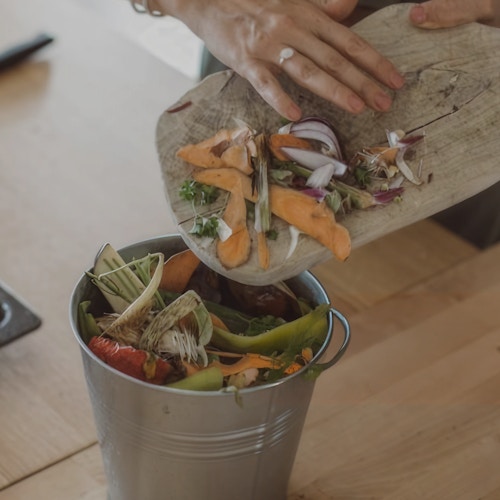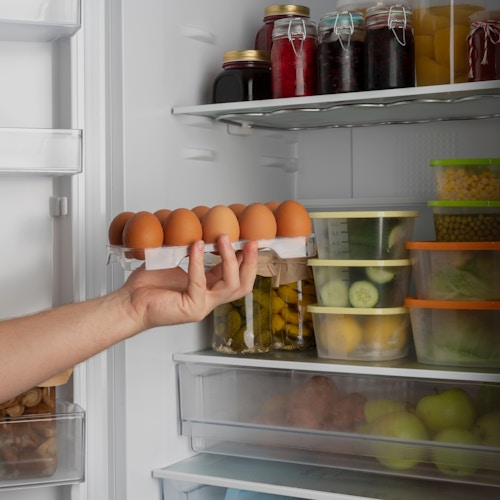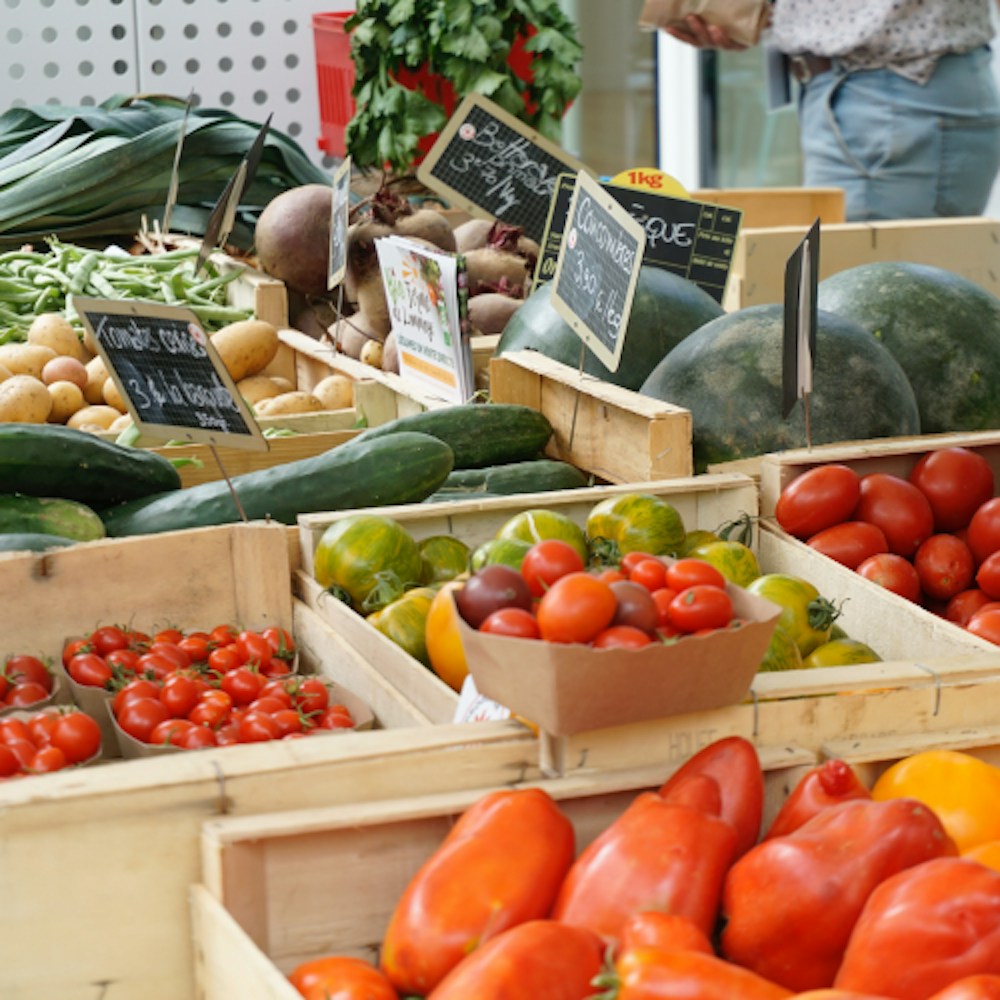
What’s the impact of food waste on our environment?
→
Food waste is a source of not only economic but especially environmental damage. Let's find out the causes and solutions for this global problem.
Food waste
The data on food waste
The causes of food waste
- Excessive food production
- Poor demand planning
- Poor storage during transportation
- Excessive food purchases
The solutions against food waste
- Planning food purchases
- Buying the right amounts of food
- Properly storing food
- Reusing leftovers
- Getting informed about sustainable practices
- Using Shelfy in your refrigerator
Shelfy: the smart device that fights food waste
Food waste
The problem of food waste is an increasingly pressing issue globally. Not only does it represent an economic loss for families and businesses, but it also has a significant impact on the environment.
By food waste we talk about the amount of food that is produced but not consumed.
There are several stages in the food process where food waste can occur, including production, harvesting, transportation, storage, catering and household consumption.
This phenomenon has an impact on three levels:
- Global
- National
- Household
In the first case, it is well known in macroeconomics that food production requires a large amount of natural resources, such as water, land and energy, and when these foods end up being wasted, all these resources are wasted with them. This therefore leads to a ripple effect which entails the waste of many more resources than food itself.
At the national level we talk about pollution of natural resources and increases in waste, severely damaging soil and water, as food waste ends up decomposing and releasing methane and other greenhouse gases into the atmosphere.
And at household level, food waste can occur when families buy too much food, don’t plan their meals, don’t properly store their food or reuse leftovers, thus creating not only an economic loss for individual households, but also contributing to environmental pollution as well.
The data on food waste
According to the Food and Agriculture Organization of the United Nations (FAO), about 1.3 billion tons of food are wasted every year, which represents a huge amount of wasted resources and energy. This amount is about 30% of food produced and wasted every year, accounting for about 4% of global GDP.
This serious problem then accounts for about 8% of the entire planet’s greenhouse gas emissions, as well as contributing to the deforestation as forested areas are cut down to make way for agricultural fields.
And in addition to being a serious impact from an environmental standpoint, given the huge amount of natural resources used, it also represents a heavy economic problem.
In fact, a 2019 study published in the journal “Waste Management” states that food waste represents an economic loss of about $750 billion a year globally.
The causes of food waste
Excessive food production
Farms often produce more food than can be sold because they don’t want to take the risk of not having enough food to sell. This is a problem that affects almost all nations, leading to the need to consider it not only as a national issue, but a real global problem.
Furthermore, the more a certain food is in demand at a given time, as per food fashions or specific demands, the more one will tend to want to keep demand high regarding that particular food: the prime example being avocados.
Although the avocado is a healthy and nutrient.rich fruit, its production often becomes excessive due to high demand from many nations where it is not usually grown for environmental impedances.
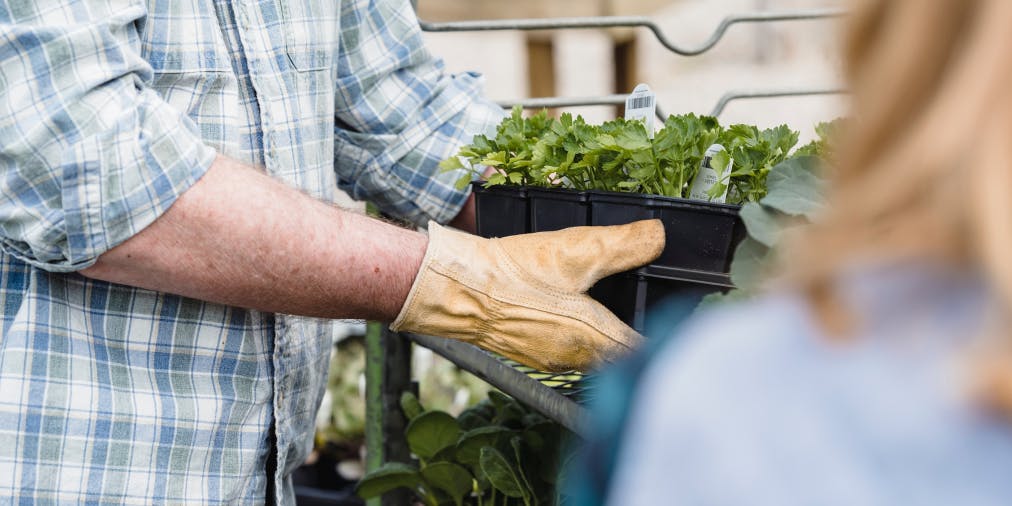
Poor demand planning
Regarding the overproduction of food, food companies have difficulties regarding the demand to be met.
Therefore, it’s not easy to have the ability to forecast the right production quantities, as people’s food choices may change according to particular trends or fashions of the moment.
As a result, overproduction for these purposes leads not only to serious environmental damage, but also to wasted money for companies that invest more than they should in the production of something that won’t be consumed.
Poor storage during transportation
Some companies have the possibility to sell their foods at km 0. But the concept of km 0 is not always possible for all companies. On the contrary, most food companies require transportation (even overseas) of food that can promote its decomposition during the journey.
Efforts have been made to find solutions where transportation is implemented in cold storage to significantly increase the shelf life, but unfortunately this is not always possible and is not a sustainable option.
Excessive food purchases
It’s not only companies that contribute to this great waste, but it’s also the choices of individual households that become participants in this global scenario.
In fact, one of the first causes is the overbuying of food by households, who buy more food than needed, ending up wasting about 2,000€ per year per single average household.
And we will focus precisely on this last problem, trying to address it with the best solutions, so that we can actively contribute to this great worldwide change marked by sustainability!
The solutions against food waste
There are several solutions that households can adopt to fight food waste and help reduce the environmental and economic impact of the problem.
Planning food purchases
It may sound simplistic, but in the end eating is an action like many others. And like many other activities, it can be planned into our days.
So planning our meals of the week is the first concrete action we can implement, starting for example by creating a grocery list and what we are going to eat day by day, helping us avoid buying excess food that ends up being wasted.

Buying the right amounts of food
By having a shopping list and knowing what we’re going to eat during the week, we can avoid making impulse purchases and only buy what we actually need for our meals.
In this way we can dedicate our monthly savings only to buying the foods we really need.
Properly storing food
Properly storing food can help extend its shelf life and avoid having to throw it away. Some techniques are:
- Refrigeration
- Freezing
- Precooking
- Keeping foods in a vacuum
But in a moment we’ll also reveal a product from our company Vitesy that can help you with this task in a simple, sustainable, and effective way!
Reusing leftovers
Use leftovers to create new dishes instead of throwing them away.
There are several really good and simple recipes that can be made using only leftovers from days before, which not only allows you to avoid wasting food, but also to create mouth-watering combinations of different dishes that you may not have thought you could make!
Getting informed about sustainable practices
Within walking distance of your town there are certainly a number of farms and food companies that are carefully eliminating food waste through sustainability-based protocols that minimize the risk of wasting food.
Choosing those who adopt these sustainable practices can help reduce food waste globally, because this means supporting businesses that care about such an important cause.
Using Shelfy in your refrigerator
I anticipated that there would be a surprise earlier. In fact, I told you about a product that is going to help you in this important problem to which none of us is unfortunately immune.
The perfect solution for you is Shelfy! A small and compact device designed for the refrigerator that will help you fight food waste through a cutting-edge, sustainable technology that is unique on the market.

Shelfy: the smart device that fights food waste
Shelfy is a product that increases the life of food in your refrigerator by up to 12 days longer thanks to its purification technology that eliminates both bad odors in your fridge and pollutants that promote the process of food decomposition.
The technology used by Shelfy is called photocatalysis: a natural chemical process that takes place in its filter, where light from a few visible band LEDs activates special safe, lab-tested nanomaterials that purify the air of pollutants that affect the rate at which your food ripens.
Easily controlled via app, the Shelfy smart device is especially concerned with removing the main pollutants that affect the aging of your food: viruses, bacteria and huge amounts of VOCs (Volatile Organic Compounds).
In fact, these microorganisms are one of the main causes of abrupt food deterioration, compromising its edibility and the overall health condition of the refrigerator.
Thanks to its state-of-the-art technology, Shelfy acts on these pollutants achieving extraordinary results on a diverse range of foods.
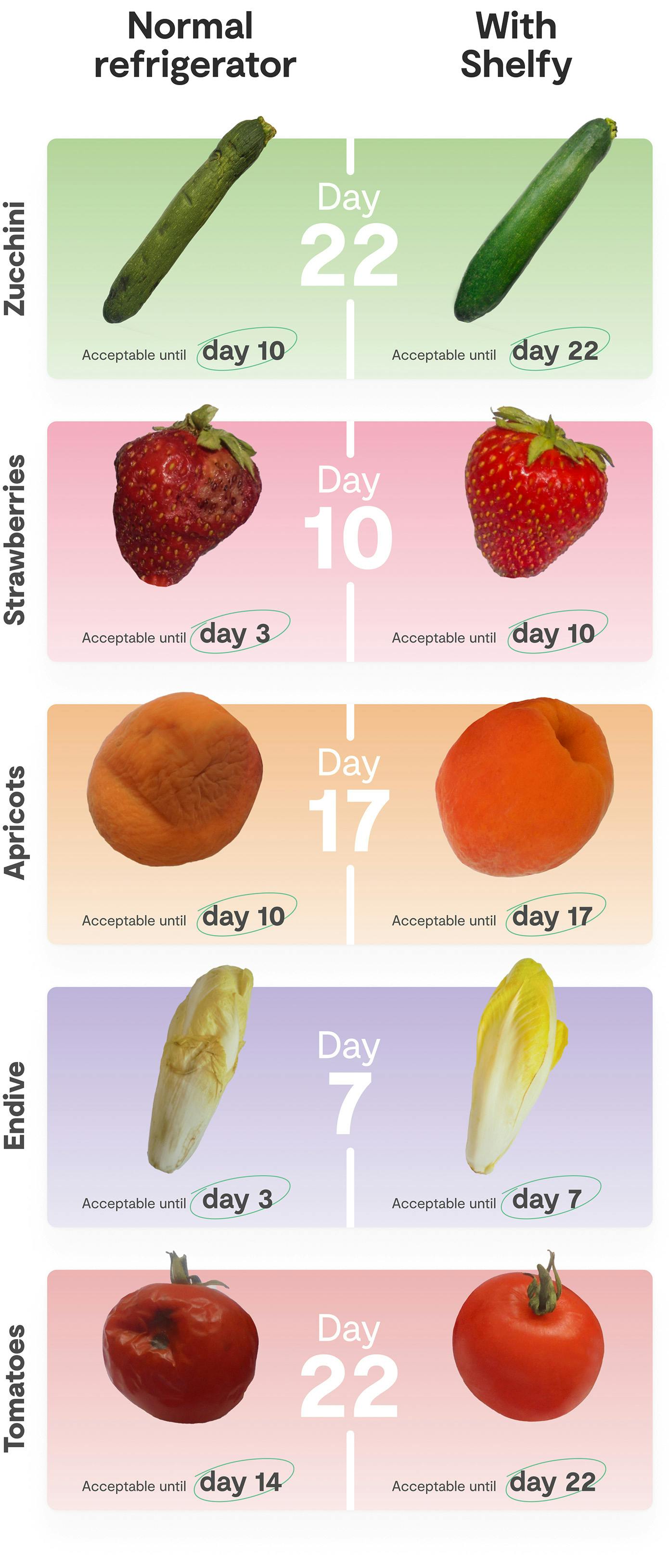
These results will then allow you to buy the right amounts of food you need to achieve a healthy and balanced lifestyle, without having to run the risk of forcing you to throw them away due to their spoilage anymore.
Do you want to be the first to receive this powerful device that will help you solve the problem of food waste?
Pre-order it now on Indiegogo at a super discounted price. Don’t miss out on the 40% off the retail price! Reserve your Shelfy directly on our crowdfunding campaign! Helps us fight food waste and let’s revolutionize the way we live together.

